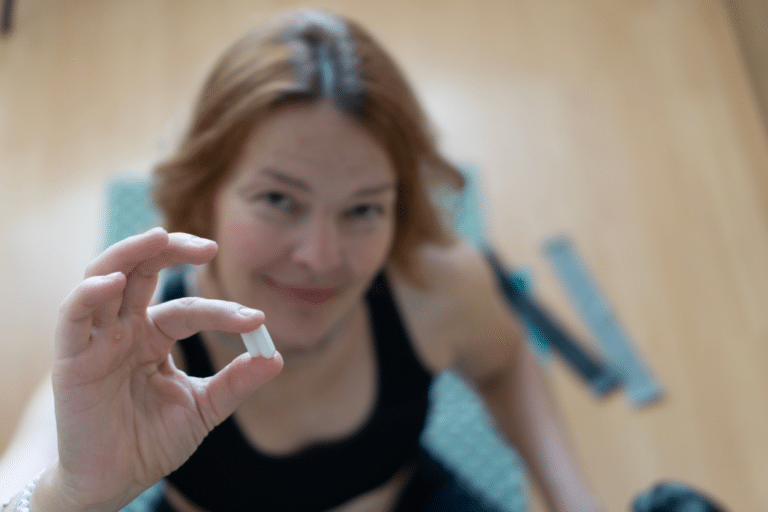Heart disease is the leading cause of death in women, yet it remains widely misunderstood and underdiagnosed—especially in menopausal women. While many associate cardiovascular disease with men, the reality is that a woman’s risk of heart disease dramatically increases after menopause due to dropping estrogen levels, metabolic changes, and other age-related factors.
Heart disease symptoms often manifest differently in women than in men, leading to delayed diagnosis and treatment. Many women, including high-achievers who push through stress and fatigue daily, may not realize that their subtle discomfort or persistent exhaustion is a warning sign of an underlying heart issue.
This article breaks down the unique risk factors menopausal women face, how their symptoms differ from men’s, and what they can do to protect their heart health.
Why Does Heart Disease Risk Increase After Menopause?
Estrogen has a protective effect on the cardiovascular system. It helps:
- Keep blood vessels flexible
- Maintain healthy cholesterol levels
- Reduce inflammation
- Support proper blood flow
But, as estrogen declines during menopause, women lose these protective benefits. This hormonal shift contributes to:
- Increased LDL (“bad”) cholesterol and decreased HDL (“good”) cholesterol
- Higher blood pressure, which strains the arteries
- Increased insulin resistance, raising the risk of diabetes
- Increased visceral fat, particularly around the abdomen, which is linked to metabolic syndrome and heart disease
These changes don’t happen overnight—they develop over years. However, many women don’t realize that what they assumed were just “menopausal symptoms” (fatigue, dizziness, sleep disturbances) could actually be early warning signs of cardiovascular issues.
Symptoms of Heart Disease in Women vs. Men
Most people associate heart attacks with crushing chest pain—a classic symptom in men. But for women, symptoms are often more subtle and easily dismissed.
Common Symptoms in Women:
- Shortness of breath (even without exertion)
- Unexplained fatigue
- Nausea or vomiting
- Dizziness or lightheadedness
- Upper back, jaw, or neck pain
- A feeling of pressure or discomfort in the chest—not necessarily sharp pain
- Cold sweats
Because these symptoms don’t always present as a dramatic “Hollywood-style” heart attack, many women ignore them or attribute them to stress, anxiety, or menopause itself.
Unfortunately, this can lead to delayed medical attention, increasing the risk of complications or sudden cardiac events.
Risk Factors Women Should Be Paying Attention To
Menopausal women should be proactive about their cardiovascular health, especially if they have any of the following risk factors:
- High blood pressure – A silent killer, as it strains the heart over time.
- High cholesterol levels – Especially rising LDL levels and lower HDL.
- Insulin resistance or type 2 diabetes – A major contributor to heart disease in women.
- Excess visceral fat – Belly fat is a strong predictor of heart disease.
- Chronic stress & poor sleep – Both can elevate cortisol levels, which negatively impact heart health.
- Sedentary lifestyle – A lack of exercise weakens cardiovascular function.
- Smoking history – Women who smoke have a higher risk of heart disease than men who smoke.
- Autoimmune diseases (like rheumatoid arthritis or lupus) – These increase inflammation, which is linked to heart disease.
Even if a woman doesn’t have traditional risk factors, menopause itself is a risk factor due to the loss of estrogen’s protective effects. This is why even those with “normal” cholesterol or blood pressure should still be paying attention.
How to Protect Your Heart During and After Menopause
The good news? There are many ways to reduce the risk of heart disease and support cardiovascular health during menopause.
Get Regular Testing
Annual heart screenings should include:
- Blood pressure checks
- Lipid panel (LDL, HDL, triglycerides)
- A1C test (to monitor blood sugar)
- Inflammatory markers like CRP (C-reactive protein)
- Coronary calcium scan (for high-risk individuals)
Clean Up Your Diet
Focus on heart-healthy, anti-inflammatory foods, including:
- Healthy fats (avocados, olive oil, nuts, seeds)
- Omega-3-rich fish (salmon, sardines, mackerel)
- Leafy greens and fiber-rich vegetables
- Antioxidant-rich berries
- Limit processed foods, added sugars, and trans fats
Move!
A mix of resistance training and aerobic exercise helps maintain metabolic health, improve circulation, and lower cardiovascular risk.
- Strength training improves insulin sensitivity and supports lean muscle mass.
- Cardio (walking, cycling, swimming) enhances heart and lung function.
- Mobility and flexibility (yoga, Pilates) support circulation and reduce stress.
Manage Stress & Sleep
- Chronic stress leads to high cortisol, which raises blood pressure and inflammation.
- Poor sleep increases the risk of high blood pressure and weight gain.
Tips:
- Daily stress reduction practices (meditation, deep breathing, nature walks)
- Consistent sleep schedule (aim for 7-9 hours)
- Magnesium supplementation to improve relaxation and heart function
Final Thoughts: Don’t Ignore the Warning Signs
- Don’t brush off symptoms. If you’re experiencing unexplained fatigue, shortness of breath, or upper body discomfort, see a doctor.
- Be proactive. Get routine checkups, focus on heart-friendly habits, and advocate for your own health.
- Take it seriously. Women’s heart symptoms don’t always “look” like heart attacks in men—but they’re just as deadly.
Midlife should be a time where you are vibrant, strong, and healthy because you’ve got stuff to do! Taking care of your heart is one of the best investments you can make in yourself.
Dr. Anna Garrett is a menopause expert and Doctor of Pharmacy. She helps women who are struggling with symptoms of perimenopause and menopause find natural hormone balancing solutions so they can rock their mojo through midlife and beyond. Dr. Anna is the author of Perimenopause: The Savvy Sister’s Guide to Hormone Harmony. Order your copy at www.perimenopausebook.com.
Dr. Anna is available for 1-1 consultation. Find out more at www.drannagarrett.com/lets-talk




